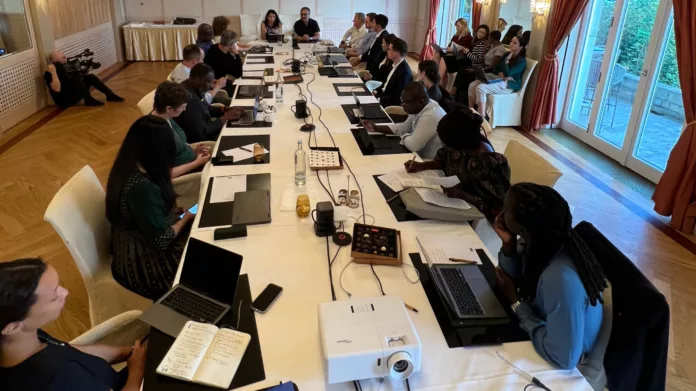By Robert A Emmanuel
“It cannot be expected that our people will remain silent as their homes are irretrievably destroyed.”
Those were the words from Prime Minister Gaston Browne who addressed members of the International Tribunal for the Law of the Sea (ITLOS) – the UN’s maritime court – as a coalition of small island states seeks an advisory opinion on the obligations of countries to combat climate change.
The action was brought on behalf of the Commission of Small Island States on Climate Change and International Law (COSIS), which is a joint effort of the Tuvalu and Antigua and Barbuda governments, as the Prime Ministers of both countries presented their arguments before the court in Hamburg, Germany.
Prime Minister Browne told tribunal President, Judge Albert Hoffmann, and a panel of judges that as small island countries continue to face the existential threat of rising sea levels, it is vital for the major polluting countries to take action and for international law to protect the most climate vulnerable states.
“This is the opening chapter in the struggle to change the conduct of the international community by clarifying the obligations of states to protect the marine environment.
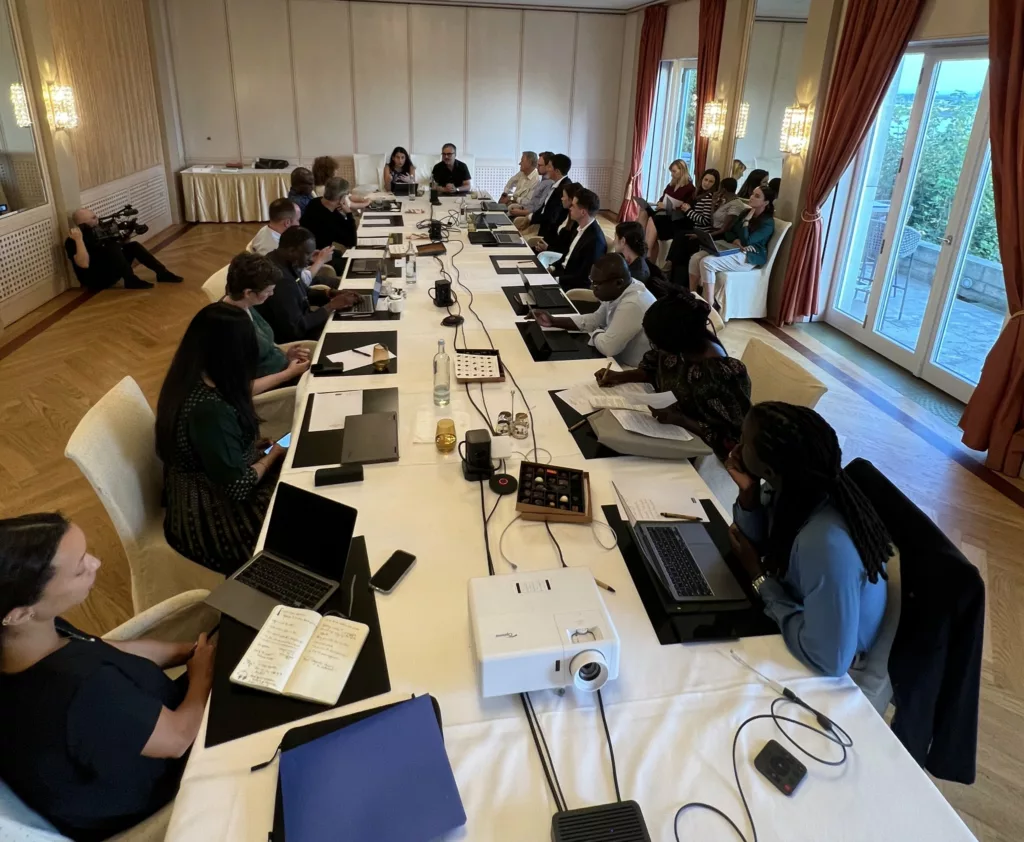
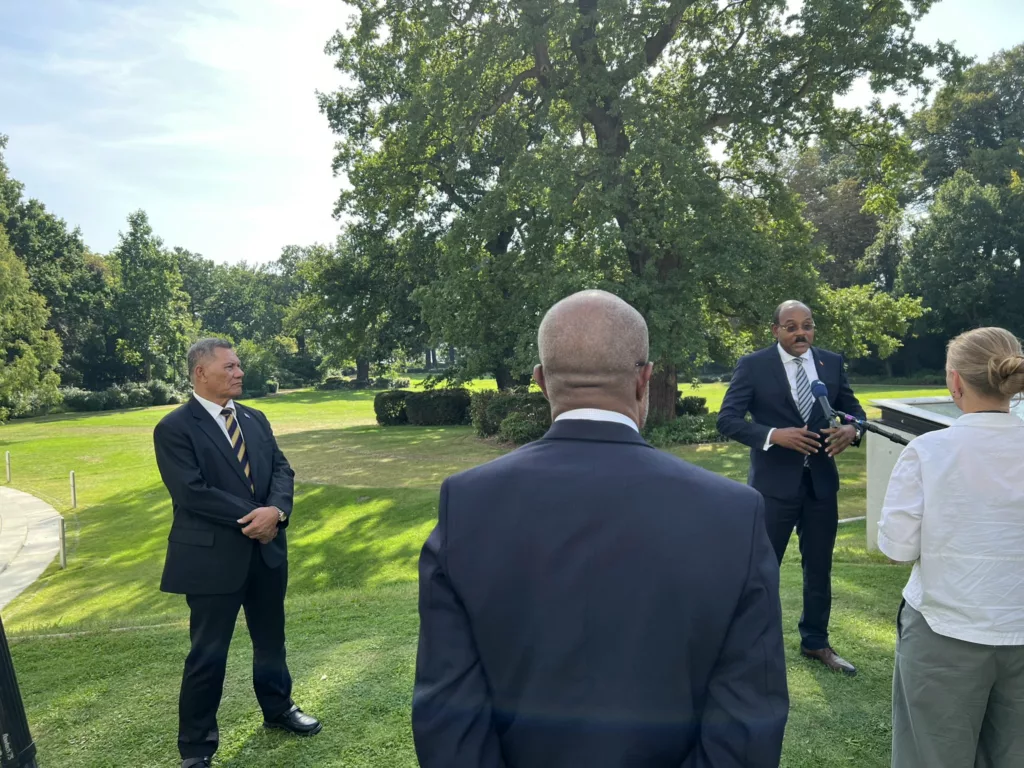
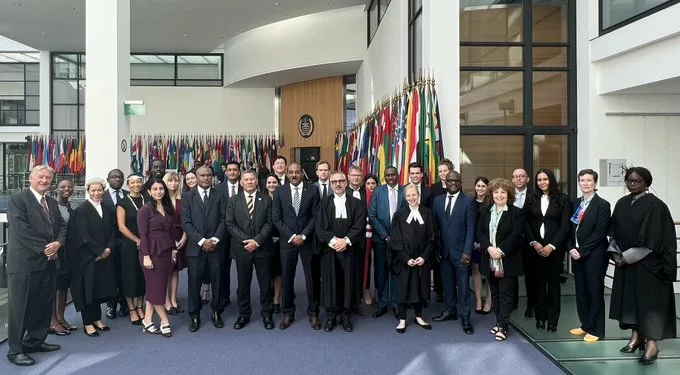
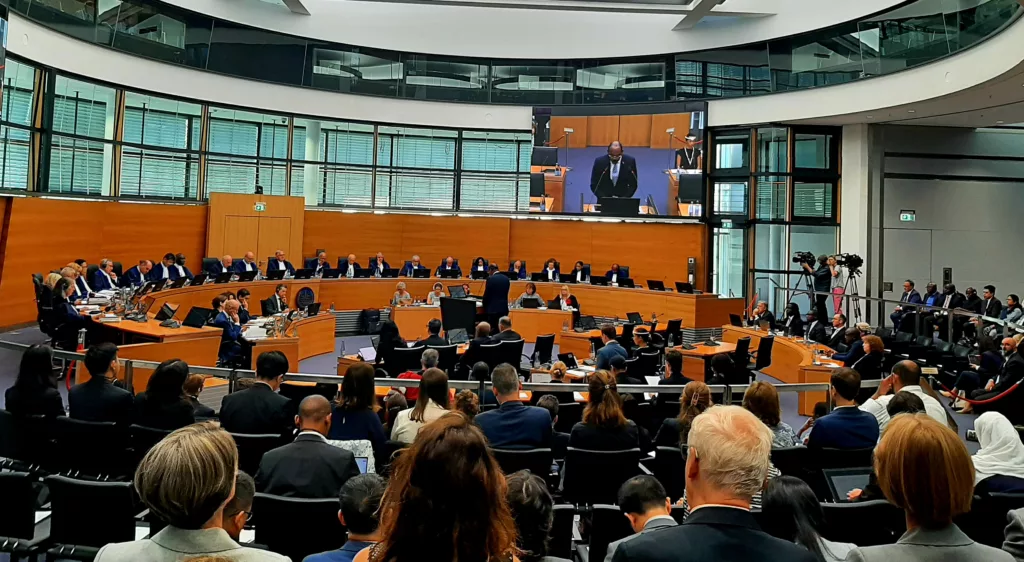
“We are, after all, peoples of the ocean, whether in the Caribbean or the Pacific, in the Atlantic or Indian oceans, surrounded by the vast expanses of water that have sustained us from time immemorial,” Prime Minister stated.
Alongside Antigua and Barbuda and Tuvalu, COSIS members also include Palau, Niue, Vanuatu, the Bahamas, St Vincent and the Grenadines, and St Lucia.
Prime Minister Browne said despite island states’ minimal impact towards greenhouse gas emissions, centuries of pollution have meant inaction would be dire.
“Without rapid and ambitious remedial action, climate change may prevent my children and grandchildren from living on the island of their ancestors, the island we call home.
“We cannot remain silent in the face of such injustice. We cannot abandon our peoples to such a cruel fate,” the Prime Minister argued.
The tribunal’s advisory opinions are not legally binding, but could offer authoritative legal guidance as states seek to build consensus around climate protection law.
One of the many questions being posed to the tribunal was whether carbon emissions absorbed by the ocean should be classified as marine pollution under international law.
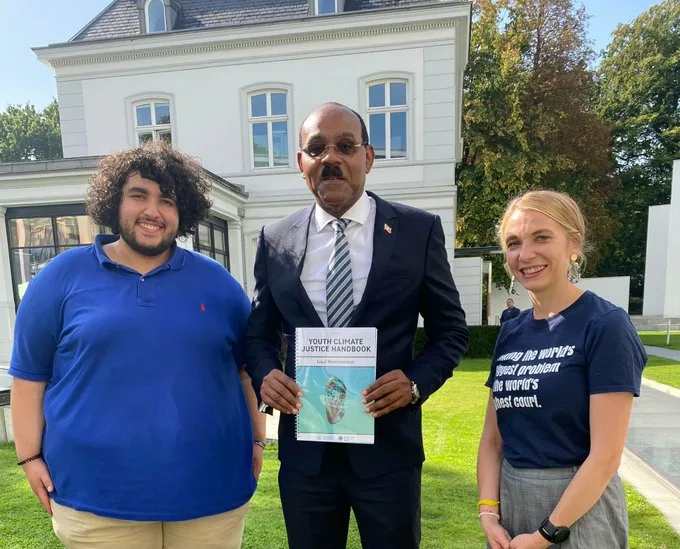
According to Article 1(1)(4) of the United Nations Convention on the Law of the Sea, pollution of the marine environmentmeans“the introduction by man, directly or indirectly, of substances or energy into the marine environment, including estuaries, which result or is likely to result in such deleterious effects as harm to living resources and marine life, hazards to human health, hindrance to marine activities…and other legitimate uses of the sea”.
According to the International Atomic Energy Agency (IAEA), the ocean absorbs around one third of all human-induced CO2, causing ocean acidification and presenting a serious threat to marine life, ecosystem health and people whose livelihoods depend on the ocean.
Yesterday’s hearing saw presentations from environmental scientists, lawyers and government officials.
According to the ITLOS, 35 states and three intergovernmental organisations will also participate in the hearing.
These include Argentina, Australia, Bangladesh, Belize, Chile, China, the European Union, France, Germany, Guatemala, India, Indonesia, Italy, Mexico, Netherlands, New Zealand, Norway, Philippines, Portugal, Republic of Korea, Saudi Arabia, Sierra Leone, Singapore, Timor-Leste, United Kingdom, Vietnam, the African Union, International Union for Conservation of Nature and Natural Resources, and the Pacific Community.
The hearing, which began yesterday, will continue until September 25 with presentations from France, Italy, Netherlands and the United Kingdom.

